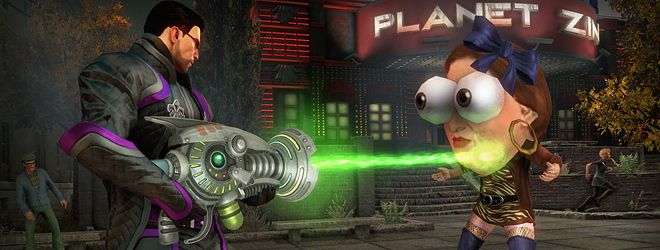Best of 2013: What’s So Special About Games?
by Adam B
First Published: October 18, 2013
Voted For By: Ian
Reason(s) for Vote:
Not much to say, simply a very good article highlighting the struggles that gaming as a medium faces in the wider view of the world. It’s something I bang on about constantly to ‘non-gamers’, so yeah, resonated pretty nicely.
————————————————————————————————————————————————————–
 It seems as though these days you can’t swing a cat without hitting a “controversial” video game; something that has stirred outrage within sections of the gaming community, the whole gaming community or often that mainstream media we hear so much about. This isn’t a particularly new phenomenon; everyone remembers the “Mass Effect Features Graphic Sex With Aliens” scandal and the “There’s a sex mini-game in an 18-rated game about being a violent criminal that’s only accessible if you go out of your way to mod the game” incident, but it does seem to be happening with increasing frequency.
It seems as though these days you can’t swing a cat without hitting a “controversial” video game; something that has stirred outrage within sections of the gaming community, the whole gaming community or often that mainstream media we hear so much about. This isn’t a particularly new phenomenon; everyone remembers the “Mass Effect Features Graphic Sex With Aliens” scandal and the “There’s a sex mini-game in an 18-rated game about being a violent criminal that’s only accessible if you go out of your way to mod the game” incident, but it does seem to be happening with increasing frequency.
My question is this: What’s so special about games? We have TV shows, movies, music, and books filled with violence, drug use, rape, racism, homophobia, sexism and pretty much every other example of terrible human behaviour and yet those media have to go to extreme lengths to get the masses up in arms. Games, on the other hand, barely have to whisper “tits” and everyone’s calling for them to be banned before they do something unspeakable to our children (the games, not the tits). That’s not to say that there aren’t controversies in other media, there are, but I feel that games seem to have a much lower threshold for what is considered “unacceptable” and their issues are more often framed as “think of what this will do to people!” as opposed to a simple “I find this offensive” that tends to hold sway over other creative works.
Before I go any further I’d just like to make it perfectly clear that I am not necessarily endorsing any of the depictions of terrible and not-so terrible things in games that are mentioned below, I’m just asking for a little equality here.

Let’s take a recent example: Hotline Miami 2 – a sequel to a game in which you brutally murder room after room of human beings because you get answer phone messages telling you to – initially included a scene in its demo where, after pummelling a women to the ground, the player’s character drops his trousers in apparent preparation to rape her, at which point a previously unseen director yells “Cut” and the whole thing is revealed to be part of a film set. This caused outrage across the games media with many questioning how such an abhorrent scene was allowed to make it into a finished product, placed there seemingly just for its shock value. The developers claim that the scene was shown out of context in the demo and have since removed it, although it will presumably still feature in the final game. There was similar outrage expressed when it appeared as though the rebooted Tomb Raider game was to feature scenes involving the sexual assault of the main character, although this particular controversy turned out to be slightly overblown once the scene was played out in context with the rest of the game.
 The thing is, it took me a just couple of minutes on Google to find comprehensive lists of dozens of movies and books featuring rape scenes, either implicit or explicit, many of which are highly rated and in some cases award-winning. These works rarely garner any negative attention at all for their controversial content and in fact are often seen by critics as “daring” and “edgy” for having the courage to tackle such difficult issues, even when they do so in a way that could easily be seen as exploitative or publicity-seeking. One has to wonder why a cut-scene featuring rape or sexual assault in a game is viewed so much more negatively that a similar scene in a film or TV show.
The thing is, it took me a just couple of minutes on Google to find comprehensive lists of dozens of movies and books featuring rape scenes, either implicit or explicit, many of which are highly rated and in some cases award-winning. These works rarely garner any negative attention at all for their controversial content and in fact are often seen by critics as “daring” and “edgy” for having the courage to tackle such difficult issues, even when they do so in a way that could easily be seen as exploitative or publicity-seeking. One has to wonder why a cut-scene featuring rape or sexual assault in a game is viewed so much more negatively that a similar scene in a film or TV show.
The recently released Dragon’s Crown caused an upset prior to its release due to its overtly-sexualised female characters, including one with breasts larger than her head and others whose sole purpose was to appear, barely clothed and suggestively posed, as damsels in distress to be bravely rescued by the heroic player. Similarly, the Suda51 title Killer Is Dead received a lot of flak for its “Stare at this woman’s bits while she’s not looking in order to work up the courage to talk her into bed so you can unlock new weapons” mini-game. Compare this to something like US cable TV network HBO, which is basically the “full-frontal nudity and a bit of incest because why the hell not” channel and people rarely make much of a fuss about it.
It’s not just sex in games that upsets people, however, as the release of Saints Row IV in Australia was only possible after the developers removed missions involving the use of “virtual alien narcotics” (i.e. Drugs, made by aliens, in the Matrix) in a beneficial context, because the Australian ratings board saw the positive use of any kind of drugs as unacceptable, despite classification being given to films like Limitless, Akira, Dune, Captain America and more, all of which feature characters taking drugs, often illegal and/or dangerous ones, that give them special abilities or enhance their existing ones. Apparently if you see drugs being taken in a movie, you’ll think nothing of it, but should you see the same behaviour in a game then you’ll be an addict before the end credits roll.
 Violence seems to be one of the few things to get a pass in games; people generally seem to have no issue with you spending hours at a time mercilessly slaughtering a variety of different people using a wide array of tools including guns, knives, explosives and dogs, often with some pretty tenuous reasons for doing so and rarely with any negative consequences. Obviously there are people who complain about the effect this terrible material will have on their children, but most of these are idiots who are buying 18-rated games for said children and thus their opinion is irrelevant
Violence seems to be one of the few things to get a pass in games; people generally seem to have no issue with you spending hours at a time mercilessly slaughtering a variety of different people using a wide array of tools including guns, knives, explosives and dogs, often with some pretty tenuous reasons for doing so and rarely with any negative consequences. Obviously there are people who complain about the effect this terrible material will have on their children, but most of these are idiots who are buying 18-rated games for said children and thus their opinion is irrelevant
One of the few exceptions to the violence rule is specific, targeted violence – as opposed to the usual indiscriminate form – such as the torture scenes in GTA V or the infamous “No Russian” level in Modern Warfare 2; in those cases, the fact that you are usually directly harming a named individual or being explicitly instructed to kill groups of innocent bystanders tends to make it much more difficult for people to deal with than blowing up a building full of random people. To deploy an apt quote: “The death of one man is a tragedy, the death of millions is a statistic”, often literally in games. In a slightly different vein, Germany frequently bans or restricts games that feature graphic depictions of violence against humans, despite being the country that brought us Uwe Boll, the man responsible for some of the greatest cinematic atrocities in our history.
What makes it all rather difficult to grasp is that these aren’t kids games we’re talking about, they’re not putting torture scenes into a My Little Pony game, making Barbie’s Dreamhouse a drug den or having the Bratz turn tricks to pay for their bling (although, frankly, that one is a little less clear-cut). These are mostly 18-rated games, targeted at adults who should be perfectly capable of making rational decisions about what games they do or do not want to play. There are a lot of games I don’t like; things like Postal 2, Ethnic Cleansing or the quite frankly awful RapeLay do not appeal to me in the slightest, so I choose not to play them. If I had kids, I wouldn’t let them play them either, because they’re either 18-rated and/or utterly unsuitable for children (or anyone). If I knew someone who had been kidnapped, racially abused, tortured or raped, I wouldn’t make them watch or play them, because it could be very traumatic for them. That said, as tasteless and unworthy as I may consider these games, I’m not denouncing them from the rooftops or campaigning for them to be banned because nothing about them is illegal (actually, I don’t know if RapeLay would fall foul of the UK’s proposed rape porn laws, I have to imagine it probably would) and banning things based on your own personal preferences is great right up until other people with different preferences to you start doing it too.
 I think part of the problem is that games cast us as the protagonist; we’re not simply watching the Action Hero shooting guys in the face over and over again or the Creepy Guy beating his girlfriend, we’re doing it ourselves, explicitly and graphically, and most of the time we’re not given any alternative. When you’re watching somebody else doing something horrible on TV it may make you feel uncomfortable but it rarely makes you feel like you are a terrible person. The player agency that games often so desperately seek to create is also the source of the backlash caused when developers are seen to mishandle sensitive topics or “gameify” them in a tasteless manner.
I think part of the problem is that games cast us as the protagonist; we’re not simply watching the Action Hero shooting guys in the face over and over again or the Creepy Guy beating his girlfriend, we’re doing it ourselves, explicitly and graphically, and most of the time we’re not given any alternative. When you’re watching somebody else doing something horrible on TV it may make you feel uncomfortable but it rarely makes you feel like you are a terrible person. The player agency that games often so desperately seek to create is also the source of the backlash caused when developers are seen to mishandle sensitive topics or “gameify” them in a tasteless manner.
The other problem is that games are seen as a new medium, if you can still call thirty years “new”; we’ve already worked our way through and largely exhausted prurient literature, rock music, sex and violence in films, sex and violence on TV, rap music and many other forms of media as sources of the inexorable moral decay of our society. Games still aren’t seen as mainstream and lots of people don’t “get” them so they must be feared, they feature a degree of interactivity that sets them apart from more traditional media and an awful lot of people still see them as “something for kids”, which make their reactions to objectionable content all the more enthusiastic as they assume that the hyper-violent military combat simulator is being directly aimed at their nine-year old.
What’s the solution to this problem? Well I have a horrible feeling that the most effective one may simply be time; right now most people with influential positions in the media, government, and pressure groups are from a generation who grew up without video games, or at least before they had become commonplace. These people won’t be in those positions forever and, as they go, there’s hope that they will be replaced by people who have grown up with games and don’t see them as this terrifying monster determined to destroy our innocence, but as a fundamental part of our culture in the same way as movies, books, TV or music. In the meantime, all we can do is try to educate these people as to what games really are; not simply a homogeneous mass of sex and violence but something that can cover the entire spectrum of storytelling, from the mindless summer action blockbuster to the deeply affecting emotional roller-coaster that will have you sobbing into your keyboard. Games are special, just don’t let people treat them differently out of ignorance.
Just as a little afterthought to darken your day, the other possibility is that we’re simply so desensitised to sex, drugs, violence et al in books, TV, music and movies that we just don’t think about it anymore and it’s only a matter of time before we become similarly desensitised to this content in games. So cheer up, you’ve got something to look forward to.
Last five articles by Adam B
- Deus Ex: Mankind Divided - Review
- No Man's Sky - Review
- The Curious Tale of The Consoles That Became PCs
- Quality of Life
- Why You Should Be Watching Dota 2 Right Now






















There are no comments, yet.
Why don’t you be the first? Come on, you know you want to!